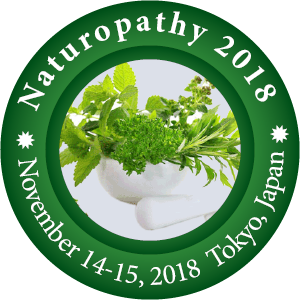
Kelly Armstrong
Wide Awake Wellness, USA
Title: Science of acupuncture measuring autonomic and endocrine health benefits of acupuncture therapy
Biography
Biography: Kelly Armstrong
Abstract
Target Audience:
This lecture is directed towards practitioners who wish to increase their scientific knowledge of how acupuncture influences HRV, stress, exercise tolerance, parasympathetic activity and cortisol levels, for improved patient outcomes in their current or future patient population.
Title:
Science of Acupuncture. Measuring Autonomic and Endocrine Health benefits of Acupuncture Therapies.
Session Summary:
Learning Objectives:
1) Describe the dimensions and relationships of HRV, cortisol levels and Autonomic Nervous system testing, and their relationship and implications to the current Acupuncture setting.
2) Describe and scientifically analyze the influence of Microcurrent Acupuncture (MA) applied to Battlefield Acupuncture Protocol has on HRV, stress, parasympathetic and cortisol levels when applied to chronic pain patients. Published Medical Acupuncture -Volume 29, Number 2, 2017
3) Learn to identify and locate key acupuncture-trigger points that have been scientifically supported to positively influence autonomic regulation and stress cortisol levels.
Level of Learning:
Introductory or beginner
Lecture Description:
It is widely accepted in science that imbalances of the parasympathetic (rest and healing, calming) and sympathetic (flight/fight/stress) branches of the autonomic nervous system (
The autonomic nervous system response to Microcurrent Acupuncture (MA) applied to BFA protocol reflected a statistically significant pre-post improvement in seven of the 29 markers collected: pain on the VAS scale was reduced by 63%, heart rate variability improved by 42%, High Frequency-Vagal tone improved by 56% exercise tolerance increased by 22%, parasympathetic activity improved by 38% , stress reduced by 27% , PTGi cardiac marker of endothelial function, arterial blood flow, and Autonomic Nervous System regulation improved by 48% and Cardiac marker PTGVLFi - an autonomic Nervous System regulation marker of endothelial function and an indicator of Beta Cell activity had a reduction of 36% Salivary cortisol decreased by 14% , but was not statistically significant.
This evidenced-based seminar will explore the relationship between acupuncture therapies, HRV, cortisol stress levels, and their influence on exercise tolerance and pain management in the Acupuncture setting.
Conclusion
Autonomic nervous system testing and cortisol measurement levels are effective tools for real time measurements of several key Acupuncture metrics, including: HRV, stress, muscle oxygenation, chronic pain an exercise tolerance. The implications are significant industry wide as a measurement of Acupuncture outcomes and for an informed choice of modalities for the present or future rehabilitation of chronic pain and stress related patients.
Key Words
Acupuncture, stress, Heart rate Variability (HRV), Pain
Audience Size
20-250
Speakers recent published papers
K Armstrong, R Gokal, A Chevalier, W Todorsky, M Lim. Microcurrent Point Stimulation Applied to Lower Back Acupuncture Points for the Treatment of Nonspecific Neck Pain. JCAM, Volume 00, Number 00, 2017, pp. 1–5. DOI: 10.1089/acm.2016.0313.
K Armstrong, R Gokal, J. Durant, W Todorsky, A Chevalier, B FaShong. Detailed Autonomic Nervous System Analysis of Microcurrent Point Stimulation Applied to Battlefield Acupuncture Protocol. Medical Acupuncture 29, Number2, 2017. DOI: 10.1089/acu.2017.1214.
A Chevalier, K Armstrong, C Norwood-Williams, R Gokal. DC Electroacupuncture Effects on Scars and Sutures of a Patient with Postconcussion Pain. Medical Acupuncture, Vol. 28, No. 4, August 2016: 223-229. Republished May 2017.
Chevalier A, Armstrong K, Gokal R. Microcurrent Point Stimulation Applied to Acupuncture Points for the Treatment of Non-Specific Lower Back Pain. J Altern Complement Integr Med 2016, 2: 016

